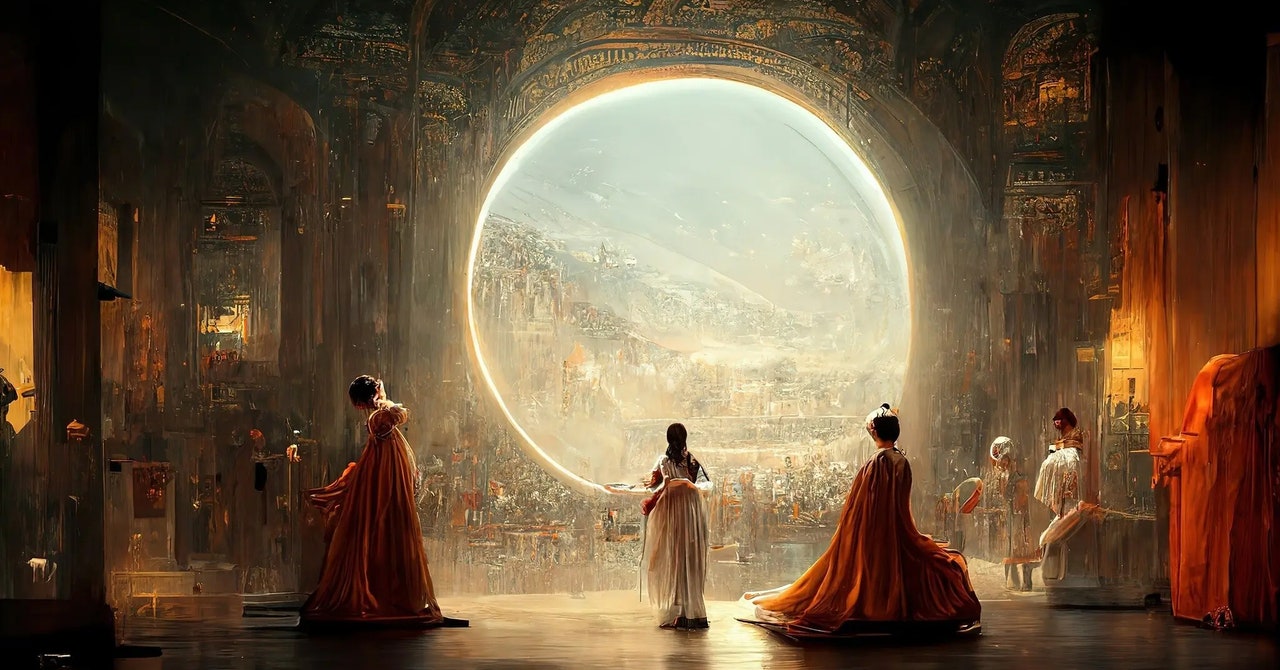An award-winning piece of AI art cannot be copyrighted, the US Copyright Office has ruled. The artwork, Théâtre D’opéra Spatial, was created by Matthew Allen and came first in last year’s Colorado State Fair. Since then, the piece has been embroiled in a precedent-affirming copyright dispute. Now, the government agency has issued its third and final decision: Allen’s work is not eligible for copyright.
Now, Allen plans to file a lawsuit against the US federal government. “I’m going to fight this like hell,” he says.
The problem? Allen used the generative AI program Midjourney to create his entry, and copyright protections are not extended to artificial intelligence—not even the kind that wows art judges. “It’s in line with previous decisions that require human authors,” says Rebecca Tushnet, a Harvard Law School professor and leading copyright scholar.
It’s a precedent that goes back to 2018 when a photo taken by a macaque was declared public domain because monkeys can’t hold copyright. PETA may beg to differ, but under the law, monkeys and machines have about the same claim on copyright protections right now. (And this isn’t just in the US. In nearly every country, copyright is pegged to human authorship.)
Allen was dogged in his attempt to register his work. He sent a written explanation to the Copyright Office detailing how much he’d done to manipulate what Midjourney conjured, as well as how much he fiddled with the raw image, using Adobe Photoshop to fix flaws and Gigapixel AI to increase the size and resolution. He specified that creating the painting had required at least 624 text prompts and input revisions.
The Copyright Office agreed that the parts of the painting that Allen had altered with Adobe constituted original work. However, it maintained that other parts generated by AI could not be copyrighted. In other words: Allen could copyright parts of the painting, but not the whole thing. This July, Allen appealed once more, arguing that the office had ignored “the essential element of human creativity” needed to use Midjourney. He attempted to use the fair use doctrine to argue that his work should be registered, because it amounts to a transformative use of copyrighted material.
“The underlying AI generated work merely constitutes raw material which Mr. Allen has transformed through his artistic contributions,” Allen wrote.
The Copyright Office didn’t buy it. “The work cannot be registered,” it wrote in its final ruling on September 5.
Allen’s dashed efforts highlight a solidifying legal consensus. This August, a US federal judge dismissed a case brought by Missouri-based AI researcher Stephen Thalus, who has been on a mission to prove that the AI system he invented deserves copyright protections. “Plaintiff can point to no case in which a court has recognized copyright in a work originating with a nonhuman,” wrote Judge Beryl Howell of the US District Court for the District of Columbia in her decision.
Thalus is currently appealing the verdict. Ryan Abbot, his attorney, does not believe that the Copyright Office’s decision on Allen will have an impact on his client’s appeal. But he does see it as having a chilling effect on the wider world of AI-assisted art. “I think it will be a major disincentive to people developing and using AI to make art,” Abbot says.
Read the full article here





